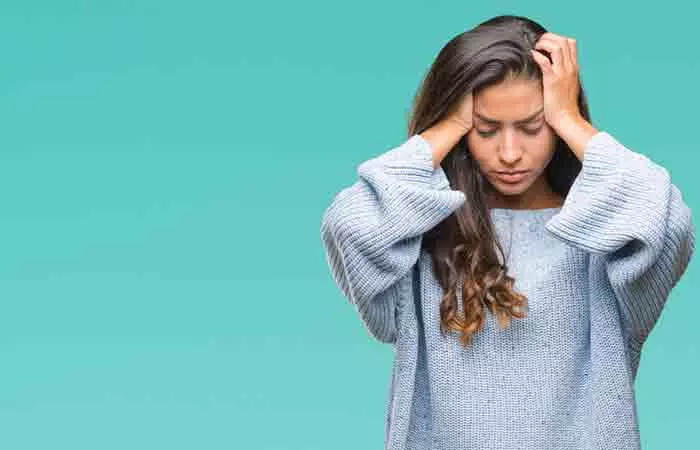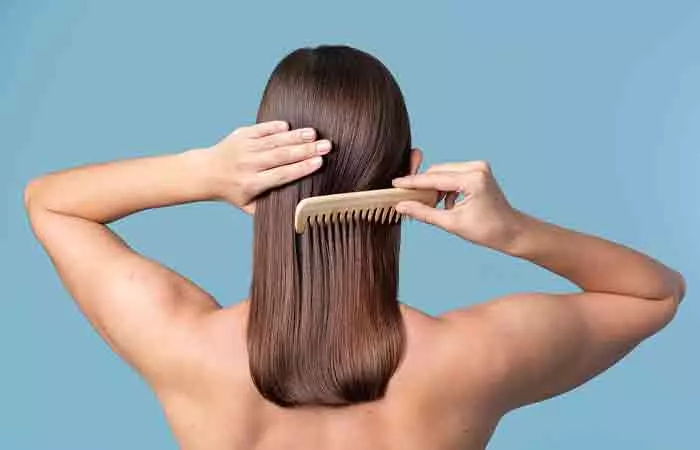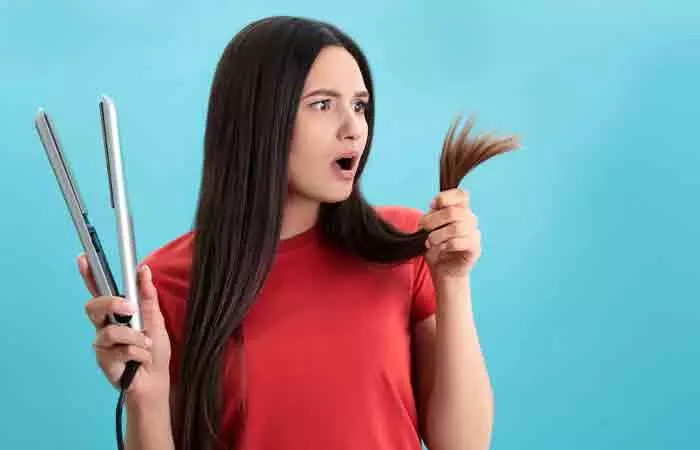Hair Shedding Vs. Hair Loss: What’s The Difference?
Hair shedding is a routine process and should not be confused with hair loss. Hair shedding is normal and a part of our body’s natural renewal process. An average person loses about 50 to 100 hair strands a day. However, the number of strands varies from person to person, depending on hair length and thickness. Those who have long and thick hair shed more compared to those who have short and fine hair. On the days you wash your hair, you may shed about 150-200 strands. Those who wash hair only once or twice a week may experience more shedding on wash days due to the product buildup. The new hair growth compensates for the hair shedding. However, in the case of hair loss, there is no new hair growth. Hair loss is also referred to as anagen effluvium (hair shedding during the growth phase). Unlike hair shedding, hair loss may be caused by:
Heredity Immune system issues Reaction to treatments and medications Hairstyles that pull the hair (like tight braids) Using harsh hair care products Pulling hair out of compulsion
Scroll down for the factors responsible for excessive hair loss in the shower.
What Causes Excessive Hair Loss In The Shower?
Stress: Emotional stress, physical stress, or trauma may cause excessive hair loss. Mice studies show a relationship between stress and hair loss (1). However, stress-induced hair loss is not permanent. Once the stress factors are eliminated, normal hair growth resumes. Hormonal Changes: Hormonal changes, thyroid issues, and PCOS can also trigger hair loss. DHT (dihydrotestosterone) affects the normal hairline, preventing new hair growth (2). If you notice no hair growth at all, consult a doctor for treatment. Nutrient Deficiency: Improper diet and nutrient deficiency may cause hair loss (3). Deficiency of iron, zinc, fatty acids, niacin, selenium, vitamins A, D, E, folic acid, amino acids, and antioxidants may cause hair loss. You can consume foods rich in these nutrients and consult a doctor for supplements. Sudden Weight Loss: If you lose a large amount of weight in a short period, it may cause telogen effluvium and affect hair growth (3) Hot Showers: Washing your hair with extremely hot water may strip the hair and scalp of its natural oils, leading to dryness and itchiness. Over time, this may weaken the hair follicles and increase hair fall. Using lukewarm water and gentle hair care products is key to maintaining healthy hair.
Using Wrong Hair Products: Using the wrong hair care products and those containing harsh ingredients may also cause hair loss. For instance, using a sulfate shampoo excessively may dry out the hair and make it breakage-prone. Genetic Factors: Genetics play a key role in hair loss, often making some people more prone to shedding than others (4). If you have a family history of thinning hair or baldness, you’re more likely to experience noticeable hair loss. This can lead to excessive shedding, including during your showers.
Tips To Prevent Hair Loss In The Shower
1. Follow A Healthy Diet
Follow a healthy and balanced diet. As hair is made of protein, daily intake of protein-rich foods will help your hair become strong and healthy and prevent excess shedding. Also, consume foods rich in iron, essential vitamins, amino acids, and folic acid. Alexandria, a YouTuber, describes her experience of combating hair loss. She states that one of the causes could be nutrient deficiency. She says, “When I really started to try to address my hair issues, I also addressed my diet. I started to eat a more balanced healthy diet, a lot more proteins, and like greens, and good carbohydrates. I cut down a lot of the processed stuff (i).”
2. Use A Wide-Toothed Comb
After-shower combing may also cause hair shedding. To prevent this, use a wide-toothed comb to detangle your hair from the ends of the strands and work your way up to the roots.
3. Avoiding Rubber Bands
Sporting a tight ponytail may strain the hair roots. Rubber bands grip the hair tightly and eventually cause more hair fall. Instead of rubber bands, you can use hair ties made of cotton or silk as they are gentle on your hair.
4. Limit Heat Styling
It’s no surprise that using excessive heat on your hair may cause hair breakage. This may eventually lead to hair loss. Hence, limit using heat styling tools like hair dryers and hair straighteners and embrace your hair’s natural texture. If you are using a heat styling tool, set the temperature to the lowest setting, and use a heat protectant spray or cream.
5. Avoid Sun Exposure
Too much sun exposure may impact scalp health, affecting the hair follicles and causing increased hair fall. Hence, use hats and scarves to protect your hair from sun exposure.
6. Nourish Your Scalp
A clean and well-nourished scalp may reduce the risk of hair fall during showers, leading to healthy and shiny hair. Neglecting the scalp may lead to clogged follicles, and dryness, contributing to hair loss. So, indulging in regular scalp care with hot oil massages may help remove dead skin cells and prevent product buildup, promoting better blood circulation and ensuring your hair follicles receive the necessary nutrients.
7. Stay Hydrated
Staying hydrated is crucial for keeping your hair healthy. Drinking enough water helps maintain a healthy scalp, preventing dryness that can contribute to hair loss. When your body is properly hydrated, your hair follicles receive the necessary nutrients to stay strong, reducing the chances of excessive shedding during showers. While a bit of hair fall is fine, a few factors may indicate that something is not right.
When Should You Worry About Hair Loss In The Shower?
Hair shedding is quite common in the shower. However, if you continue to shed regularly and experience chronic hair loss, it can be due to some underlying problems like nutritional deficiency or an illness. Hence, consult a doctor to figure out what might be causing such hair loss. When should you consult a doctor about hair loss? If you notice rapid or unexpected hair loss or bald spots, or if the hair loss is paired with symptoms like itching, redness, or pain, it’s a good idea to see a doctor. Is it normal if my hair comes out when I run my hand through it? Yes, it is normal to have 5 – 15 strands of hair in your hand when you run it through your hair. However, anything more may indicate hair loss. Does skipping hair brushing make it fall out? Yes, skipping brushing your hair too often may trigger hair fall. Brushing regularly stimulates blood circulation and promotes natural oil distribution, which may improve hair health. How often should you wash your hair? Hair washing can be done thrice a week. However, for oily hair, it can be done at least 4 times a week and for dry hair, it is ideal to wash thrice a week. Can dehydration cause hair loss? Yes, dehydration can trigger hair loss. Adequate hydration and a balanced diet help reverse this type of hair loss. Does anxiety cause hair loss? Yes, anxiety and stress can cause hair loss and hair thinning.











